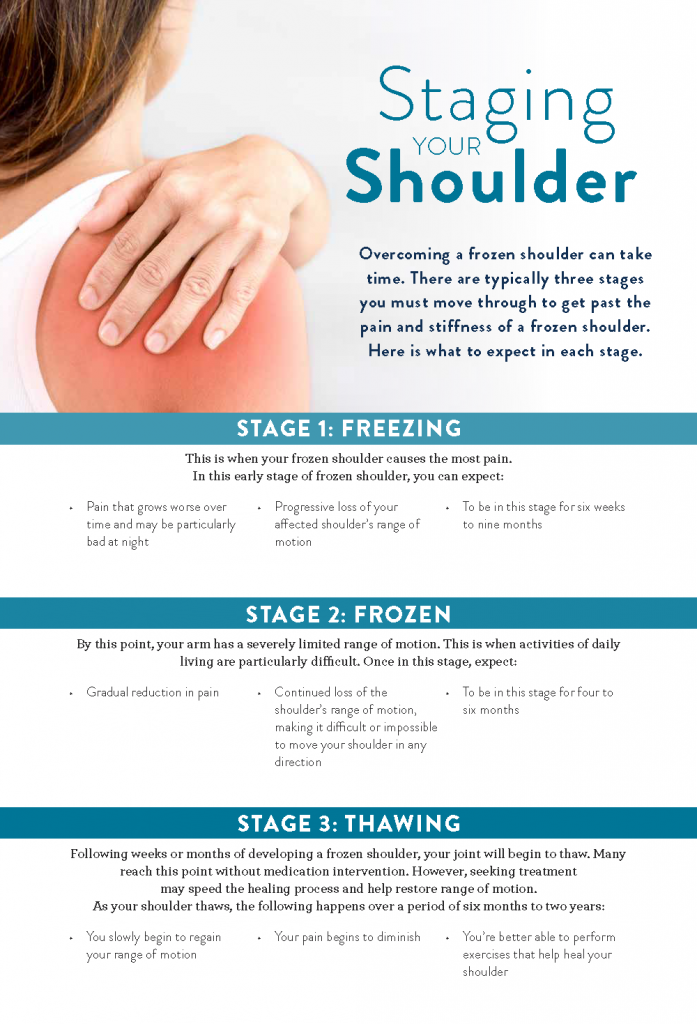What you need to know if you’re shouldering this painful condition.
Frozen shoulder is a painful condition that makes it difficult to move your arm. It affects 2% to 5% of Americans.
What Is Frozen Shoulder?
In a healthy shoulder, the ball-and-socket joint moves with ease. You’re able to lift your arms overhead or to the side without a second thought. Frozen shoulder changes that.
With frozen shoulder, the tissue surrounding your shoulder joint thickens. This tissue, known as the shoulder capsule, grows tight. Other thick tissues (adhesions) develop, and the shoulder may not have enough fluid to lubricate the joint.
As a result of those factors, you experience pain and stiffness in the shoulder. Performing normal activities becomes difficult. Movement increases the pain, and the symptoms typically worsen during the early stages of the condition.
Though anyone can be affected with frozen shoulder, certain factors increase your risk for the condition. Risk factors include:
- Age (it’s most common between ages 40 and 60)
- Diabetes
- Disease in the cervical discs of the neck
- Hormonal changes (menopause)
- Previous shoulder injury or surgery
- Sex (it’s more common with women)
- Thyroid issues
How Is Frozen Shoulder Treated?
The good news is that while it can take weeks, months or even years for a full recovery, frozen shoulder is curable. Receiving appropriate treatment ensures a fast, optimal outcome.
Common treatment for frozen shoulder includes using one or more of the following:
Medication—Over-the-counter medication, such as ibuprofen, helps to reduce pain and inflammation.
Injections—Directly injected into the shoulder, cortisone lowers inflammation and reduces pain. Should this not prove effective, fluid may be injected into the shoulder joint. This helps stretch and expand the joint capsule to reduce frozen shoulder.
Physical Therapy—Under the guidance of a physical therapist, you regain range of motion through special exercises.
Surgery—When other treatments are ineffective, surgery may be suggested. During surgery, the stiff, hardened joint capsule is released. Afterward, range of motion is greatly improved. Recovery can take up to three months.






